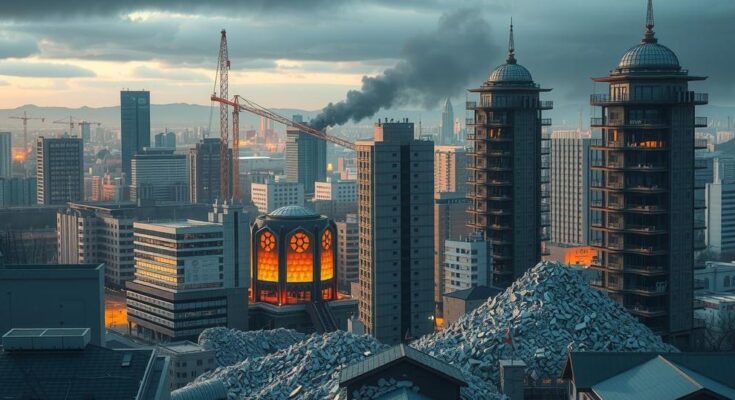The article outlines the struggles faced by residents of Wajima, Japan, after a devastating earthquake on January 1, 2022. With over 470 deaths and significant destruction, many individuals remain in temporary shelters as reconstruction progresses slowly. The emotional and physical impacts of the disaster exacerbate an existing demographic crisis, prompting questions about the community’s future together.
The New Year has become a daunting time for the residents of Wajima, Japan, particularly for 83-year-old Sueko Naka, who has had to abandon her ancestral home following a devastating earthquake on January 1 of last year. This calamity, registering a magnitude of 7.5, was the deadliest in over a decade, claiming nearly 470 lives and causing widespread destruction across the Noto Peninsula. Naka now lives in a temporary unit with her family, grappling with the emotional scars and uncertainty of their future. The earthquake resulted in significant loss, with a considerable number of residents still residing in emergency shelters, an indicator of the slow recovery process amidst ongoing aftershocks. The landscape remains heavily altered, characterized by damaged infrastructure and a significant depopulation crisis, as many are compelled to seek new lives elsewhere. Local officials highlight the challenges of rebuilding, emphasizing a need for community support and motivation to retain the remaining population in hopes of eventual recovery amid recurring disasters.
The article discusses the aftermath of a catastrophic earthquake that struck the Noto Peninsula in Japan on New Year’s Day. This seismic event has profoundly impacted the lives of its residents, particularly the elderly population, prompting reflections on displacement, loss, and resilience. The slow pace of reconstruction and continued aftershocks add to the community’s fears, while depopulation rates raise concerns about the future viability of the area. The personal stories highlight the emotional toll of living through repeated natural disasters and the community’s struggle to reclaim their lives and homes.
In summary, the earthquake in Wajima has dramatically altered the lives of its residents, fomenting a profound sense of loss and uncertainty as they navigate a challenging recovery. The enduring consequences of the disaster continue to plague the community, contributing to feelings of despair and depopulation. The shared experiences of individuals like Sueko Naka illustrate the need for a robust and compassionate approach to rebuilding efforts as they seek to restore their lives in the face of natural calamities.
Original Source: www.taipeitimes.com




